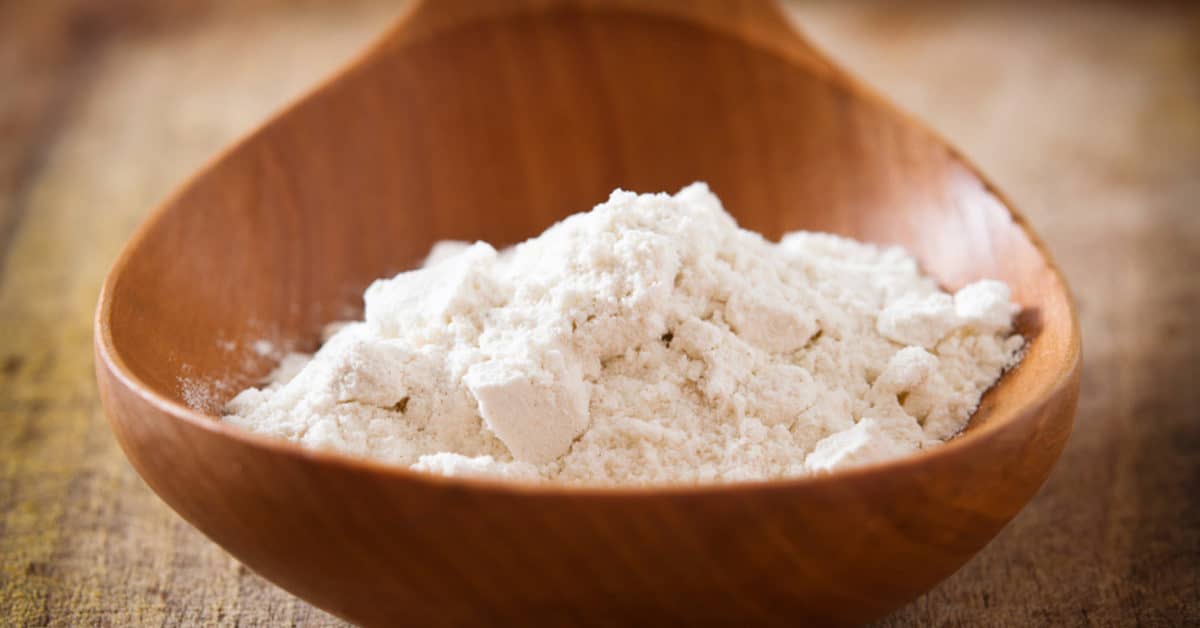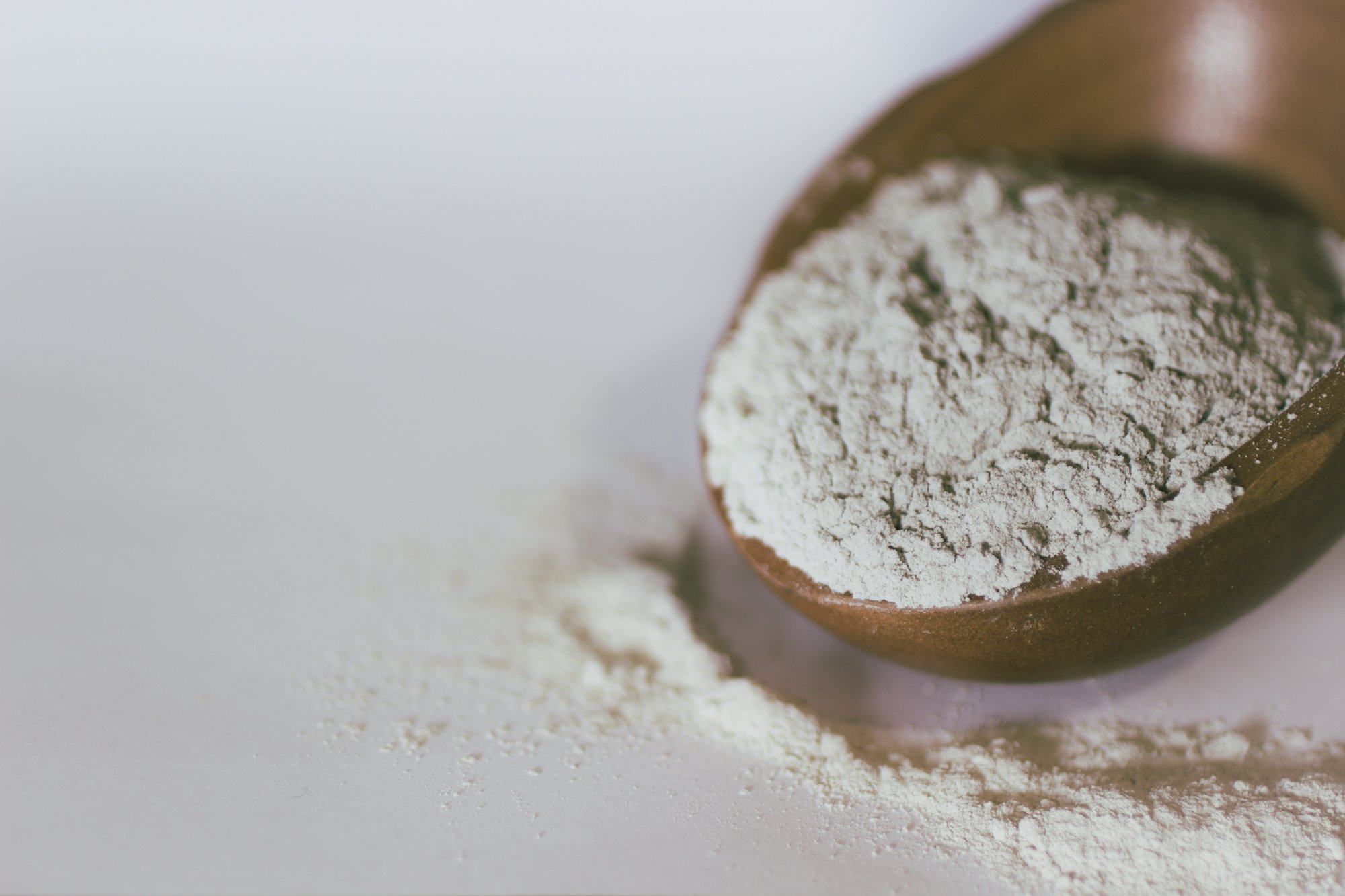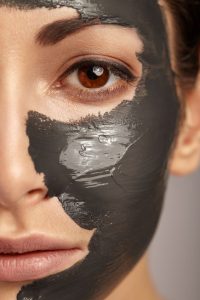
Yes, you heard it right! Adding clay to your diet will help support your digestive system, flush out bacteria, boost your vitamin and mineral levels and have an overall positive impact on your health.
The benefits aren’t just limited to your digestive system, though. Clay is also perfect for topical application on your skin as it will draw out impurities, detoxify your skin and improve your complexion.
But before you go outside, grab a shovel, dig a hole in your back yard in search of or your next dessert, keep in mind not all clay is “created equal.” The specific type of clay we are talking about here is called Bentonite clay.
What Is Bentonite Clay?
Bentonite clay is an awesome type of clay derived from volcanic ash! It is usually grayish in color and named after a place in Wyoming called Fort Benton.
What makes this clay special is its high in nutrients, including – Calcium, Magnesium, Sodium, Silica, Copper, Potassium and Iron. These ingredients help your body detoxify as well as relieve symptoms of indigestion.
How?
According to some research, bentonite clay absorbs toxins and other harmful chemicals by sticking to their molecules. And as the clay leaves our body, so does these harmful chemicals.
And when we use it on our skin, it absorbs excess oils and dirt and as we wash it off our face, we wash away the dirt as well. The clay also takes in a lot of water in the process, which is why moisturizing your skin after each treatment is essential.

Main Benefits Of Bentonite Clay
In the previous paragraphs, we only briefly touched on some of the benefits of this clay, now we’re going to dig a bit deeper and discuss some of its main benefits in more detail.
Removing Toxins As An Ingestible Supplement
Going back to the title of the article… one of the best-studied benefits of adding bentonite clay to your diet is its ability to help your body rid of toxins.
Though the majority of studies were conducted on lab animals, they showed promising results for human trials.
One study was conducted on chick, where bentonite clay was used to reduce the levels of aflatoxin in their bodies.
Another was a small-scale study conducted on lab rats that were divided into two groups – the rats in group one were given clay while the others received a placebo. After only 3 weeks, those that were on the “clay diet” had lower levels of cyanide (which they injected through wastewater).
Treating Oily Skin
As we’ve already mentioned, clay is an absorbent and besides absorbing water, it’ll also suck in excessive oil from the skin’s surface.
Not only that, using a clay mask will calm inflamed breakouts, help rid your skin of impurities, and acne.
Word of caution though…
Reading about these benefits, you might be tempted to use a clay mask every day. But, since it’s so absorbent, applying a clay mask too often can actually have a negative effect. It might dry out your skin, resulting in even more breakouts.
So, should you apply bentonite clay to your skin? Yes… but in moderation! Once a week is more than enough.
Minimizing The Appearance Of Skin Pores
Speaking as someone who has oily skin and enlarged pores, I can tell you, you can never get rid of pores completely. What you can do is minimize their appearance and bentonite clay can become one of your most trusted allies here.
Regular application will help even your skin out and refine closed, enlarged pores. Once your pores are nice and clean, you should apply moisturizer to keep the dirt and grime at bay and prevent them from becoming enlarged again.
Teeth Cleansing
In recent years, more and more toothpaste manufacturers include clay into their products. Its rich nutrient content will help remineralize your teeth. And its mild abrasive properties also help in more thorough brushing sessions.
Notice here the word “abrasive,” this is why you need to pay attention as to what clay was used as an ingredient of your tooth paste and adjust it to your teeth and gums.
Treating Poison Ivy
We all know what a poison ivy rash looks like – your skin develops redness and irritation, coupled with an intense itching sensation. But did you know you can use bentonite clay to treat this rash?
Though the exact mechanisms still aren’t clear, applying bentonite clay to the affected area (as showed in this study) not only reduced the reaction to poison ivy; it showed that, the patch of the skin treated with the clay first, developed rash later as compared to the control one.
Does this mean we should rub clay all over our bodies in an attempt to prevent poison ivy allergic reaction? Well, we wouldn’t go that far, but if you are heading out into the wilderness, packing bentonite clay might prove to be useful.
Treating Diarrhea
Though you probably shouldn’t rely on bentonite clay as your main diarrhea treatment, you can use it as a supplemental aid.
Some recent research suggests that ingesting clay has a two-fold effect on virus-related digestive issues (issues such as diarrhea). On the one hand, it slows down virus replication and spreading; and on the other, it absorbs the virus itself and as the clay leaves the body, so does the virus.
 Other Uses
Other Uses
There are, of course, many other uses we failed to mention in today’s article but might address in the upcoming ones. These uses are:
- Armpit detox
- Homemade clay soap
- Teeth whitening
- External skin mask for breast inflammation
- Baby powder
- A cure against nausea – you can use clay to alleviate the symptoms of nausea in both human and pets
Risks And Side Effects
Though most studies haven’t found any serious side effects, you must make sure you get your clay from a respected manufacturer (rather than digging it out of the ground yourself). The main reason is its purity – clay does come from the ground, so it might pick up pesticides, heavy metals, or other harmful substances.
The main responsibility of the manufacturer is to rid the clay of all these harmful ingredients and give a clean product to its consumers.






